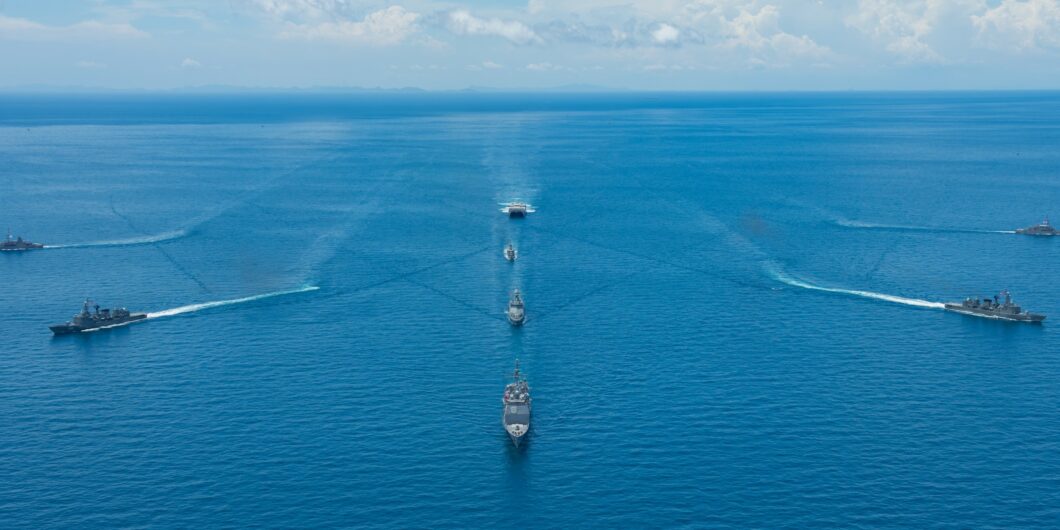Tocqueville foi um dos primeiros americanistas, apenas que precedido por Hipólito José da Costa, que antes dele, nos anos 1898-99, disse mais ou menos as mesmas coisas sobre os americanos.
Tocqueville's Economic Mind
Law and Liberty
November 11. 2024
https://lawliberty.org/tocquevilles-economic-mind/?mc_cid=29cdb97bbf&mc_eid=2256f9e707
For the Frenchman, mores were critical to explaining why ostensibly similar countries took economic paths that often varied widely.
When Alexis de Tocqueville visited America between May 9, 1831, and February 20, 1832, he encountered a world that he believed might prefigure the political future for modern societies. He also found himself in the midst of an economy that had begun its rise to become the world’s biggest and most dynamic.
Today, Tocqueville is celebrated as a political thinker whose insights in Democracy in America, The Old Regime and the Revolution, and lesser-known texts like his 1848 critique of socialism resonate over 150 years after his death. But with some notable exceptions, less attention has been given to how Tocqueville approached economic subjects.
Economic topics were on Tocqueville’s mind from the moment he stepped ashore in America. For one thing, he immediately noticed how frantically Americans pursued wealth. In a May 28 letter to his brother Edouard, Tocqueville wrote, “The profound passion, the only one which profoundly stirs the human heart, the passion of all the days, is the acquisition of riches.” Americans, he added, were “a race of merchants.”
Tocqueville was initially repelled by what struck him as base materialism, but wider mixing with Americans quickly brought home to him that plenty of them had non-economic interests. However, Tocqueville was also driven beyond superficial impressions by his determination to study the facts closely to discover what was really going on beneath the surface of a society in which economic dynamism played such an oversized part. This would lead Tocqueville to arrive at intuitions about economic life as relevant today as in his own time.
Student of Say and Guizot
Although Tocqueville once expressed a desire in an 1834 letter to his cousin Louis de Kergorlay to author a book about political economy, Tocqueville never penned such a text. He was, however, extremely well-versed in economic thought. Tocqueville knew two of the most influential economic thinkers of his time—John Stuart Mill and Nassau William Senior—and regularly corresponded with them. But the economist who exerted the most influence on Tocqueville’s thought was his fellow Frenchman, Jean-Baptiste Say.
Tocqueville read Say’s Cours complet d’économie politique pratique twice—the second time while enroute to America. Besides exposing Tocqueville to key ideas expressed in Adam Smith’s Wealth of Nations, Say stressed a point that Tocqueville never forgot: that while the economy can be studied on its own terms, one should never forget that it is embedded in society.
This resonated with something that Tocqueville had absorbed from attending two years of lectures delivered by the historian François Guizot in Paris in the late 1820s. In these discourses, the future conservative liberal French prime minister underlined the importance of seeing all social phenomena as a connected whole. Herein we find the genesis of Tocqueville’s distinct approach to economic matters.
Certainly, Tocqueville believed that there are economic truths that we defy at our peril. In his 1852 address to the Academy of Moral and Political Sciences, Tocqueville bluntly stated, “The government can no more make salaries go up when the demand for work is down, than one can prevent water from leaning to the side of glass in the direction it is tilted.” Tocqueville was also attentive to economics’ empirical side. Although the use of economic statistics was in its infancy, Tocqueville regularly drew upon them to provide a quantitative dimension to his writings.
Rather, however, than studying economic phenomena separately from everything else—a path that Mill and Senior urged Tocqueville to embrace—Tocqueville sought to identify the most salient empirical facts and connect them to other trends manifesting themselves in society. For Tocqueville, that meant trying to understand how the “institutions” (laws and constitutions) and, above all, the “moeurs” (mores, or habits of mind and heart)—of a given society impacted its economic character and prospects.
A Democratic Economy
Tocqueville’s analysis of entrepreneurship exemplifies his mode of economic inquiry. Upon arriving in America, Tocqueville instantly observed something distinctive about American economic life. “Almost all [Americans],” Tocqueville wrote in his notes, are “entrepreneurs.” Not only did Americans seem to work incessantly, they were constantly innovating, changing jobs, and moving to various parts of the country. As amazed as Tocqueville was by the huge size of some American enterprises, he was even more astonished by “the countless number of small firms” that seemed to spring up everywhere.
But whereas Adam Smith had emphasized how the multiplication of wants in commercial society accelerated the division of labor and magnified economic productivity, Tocqueville also attributed the sheer scale of entrepreneurship in America to something else: the fact that America was a thoroughly democratic society.
In his 1964 essay “Alexis de Tocqueville et Karl Marx,” the liberal philosopher Raymond Aron points out that democracy for Tocqueville is less about political structures than what Aron calls a “social state.” The social state of the Americans was one that stressed liberty and a movement towards equality over and against the caste-like character of aristocratic orders and the fixed social and economic positions they entail.
According to Tocqueville, this democratic outlook weakened the power of pre-existing hierarchies, advanced equality before the law, and facilitated free-flowing relationships mediated through contracts. The result was new possibilities for people to become socially and economically mobile. Democratic conditions thus strengthened individuals’ confidence that they could change their lives from the bottom up. Such was democracy’s effects on Americans’ self-understanding and their perceptions of the opportunities available to them.
This focus on the role of what Tocqueville called “purely moral and intellectual qualities” in human affairs is crucial to understanding his approach to economic questions. In Democracy in America, for instance, Tocqueville showed that the reasons why Americans were far more successful at overseas trade than French merchants could not be attributed to significant differences in the economic costs of such trade. The average costs for Americans and Frenchmen, Tocqueville calculated, were essentially the same.
Like contemporary institutional economists, Tocqueville appreciated the importance of legal and constitutional arrangements for economic activity.
The decisive difference, he maintained, was that Americans were far more willing to venture across the world’s oceans than most of his compatriots. As a rule, Frenchmen were more cautious than Americans, less inclined to take the initiative, and more disposed to follow direction from above. By contrast, in the face of dangers like storms and pirates, American merchants threw caution to the wind. “There is something heroic,” Tocqueville wrote with awe, “about the way Americans do business.” The same courage and propensity to risk-taking, he indicated, did not characterize France’s commercial class.
Economic Habits
One conviction that Tocqueville took away from these inquiries was that mores are critical to explaining why ostensibly similar countries took economic paths that often varied widely. Here it is important to understand precisely what Tocqueville meant by mores.
On one level, mores for Tocqueville concerned “habits of mind.” These are the ideas and opinions generally held by people in a given society. Examples might be favorable views of commerce, or a universally held opinion that governments must pursue the equalization of economic outcomes. The other sense in which Tocqueville understood mores is as “habits of the heart.” By this, Tocqueville had in mind people’s moral beliefs and values: that, for instance, freedom is good, or that economic equality is the essence of justice.
There can be considerable overlap between habits of the mind and the heart. The belief that liberty from arbitrary government is good in itself and more important than greater economic equality is likely to incline people to view free enterprise favorably and highly interventionist governments with skepticism. The particular question that interested Tocqueville, however, was the relationship between these habits and a society’s institutions.
Like contemporary institutional economists, Tocqueville appreciated the importance of legal and constitutional arrangements for economic activity. One of his criticisms of attempts in 1848 to guarantee a right to employment in France’s constitution was that such a measure could not help but lead to the government assuming total mastery of economic life. That said, Tocqueville had little doubt that everything, including how institutions functioned, ultimately depended on mores. “It is a truth central to all my thinking,” he wrote in the first volume of Democracy in America, “and in the end all my ideas come back to it.”
Mores First, Then Institutions
If Tocqueville is right, the implications for economic life are profound. A government may, for example, reduce regulation, strengthen property rights, lower tariffs, and bolster constitutional protections for economic liberty. These policies will certainly shift economic incentives and accelerate economic growth. But what happens if most people in that society continue to believe that equal outcomes are more important than economic liberty, or view a state-dominated healthcare system as integral to the country’s very identity?
Tocqueville would answer that, absent a widespread and lasting change in mores, it will be a struggle to maintain such economic and legal reforms in place over the long term. Similar conclusions about the relative import of institutions and mores for economic life can be found in the work of some modern economists.
A prominent example is the 1993 Nobel economist, Douglass C. North. In his 1993 Nobel Prize lecture, North stated:
Institutions are the humanly devised constraints that structure human interaction. They are made up of formal constraints (rules, laws, constitutions), informal constraints (norms of behavior, conventions, and self-imposed codes of conduct), and their enforcement characteristics. Together they define the incentive structure of societies and specifically economies.
Here, North’s “formal constraints” approximate to Tocqueville’s conception of “institutions” while North’s “informal constraints” are analogous to Tocqueville’s understanding of “mores.”
As for which is more important for economic reform, North contended that “both institutions and belief systems must change for successful reform since it is the mental models of the actors that will shape choices.” He warned, however, that “developing norms of behavior that will support and legitimize new rules is a lengthy process and in the absence of such reinforcing mechanisms polities will tend to be unstable.”
Indeed, North’s belief in the power of what Tocqueville calls mores was such that he maintained that “informal constraints (norms, conventions and codes of conduct) favorable to growth can sometimes produce economic growth even with unstable or adverse political rules.” Tocqueville makes a similar point in his Old Regime when explaining England’s spectacular economic growth in the nineteenth century:
Nothing is more superficial than to attribute the greatness and power of a people to the mechanisms of its laws alone; for, in this matter, it is less the perfection of the instrument than the strength of the mores that determines the result. Look at England: how many of its laws today seem more complicated, more diverse, more irregular than ours! But is there, however, a single country in Europe where the public wealth is greater, individual property more extensive, more secure, more varied, the society richer or more solid? This does not come from the bounty of particular laws, but from the spirit that animates English legislation as a whole.
Identifying causality in economic affairs is never simple. Tocqueville was careful not to exaggerate what his understanding of the relationship between mores and institutions indicated about economic phenomena. Tocqueville’s method of economic reflection nevertheless reminds us of the knowledge to be gained from bringing economics together with sustained attention to norms and culture: not least because, as North once observed, so many of the interesting issues exist on the borders between them. Tocqueville, I suspect, could not have agreed more.
Samuel Gregg is the Friedrich Hayek Chair in Economics and Economic History at the American Institute for Economic Research, and Contributing Editor at Law & Liberty. The author of 17 books—including The Commercial Society (Rowman &Littlefield), Wilhelm Röpke’s Political Economy (Edward Elgar), Becoming Europe (Encounter), Reason, Faith, and the Struggle for Western Civilization (Regnery), and most recently, The Next American Economy: Nation, State, and Markets in an Uncertain World (Encounter), as well as over 700 essays, articles, reviews, and opinion-pieces—he writes regularly on political economy, finance, classical liberalism, American conservatism, Western civilization, and natural law theory. Two of his books have been listed for Conservative Book of the Year and one was short-listed for the 2023 Hayek Prize. He is also an Affiliate Scholar at the Acton Institute. In 2024, he was awarded the prestigious Bradley Prize by The Lynde and Harry Bradley Foundation. This Prize honors scholars and practitioners whose accomplishments reflect the Bradley Foundation’s mission to restore, strengthen, and protect the principles and institutions of American exceptionalism. He can be followed on Twitter: @drsamuelgregg.




